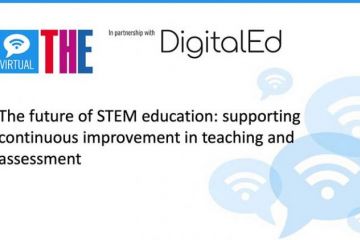The land of the dawn-lit mountains, Arunachal Pradesh, is a disputed territory lying between two super-powers with nuclear weapons, India and China. If you live in India, Google Maps shows you Arunachal Pradesh in India; if you live in China, Google Maps shows you Arunachal Pradesh definitely in China. The world's leading search engine isn't just a search engine but a camouflaged political persuader.
Google's motto is "don't be evil", which implies that its work could be evil. (My employer doesn't need to remind itself all the time not to be evil.) The problem is that we may like Google today, but it could go bad. Google knows too much about everyone for us to risk that.
Lots of information locked up inside Google could be used against you. Google's cameras have travelled the world collecting photographs and making the images available on Street View. Thieves can look at your house and see your car; now they know where to come if they want to steal to order. If you have privacy concerns this is not ideal, and it may get worse.
But if you are the voyeur, then you are on Google's side: for each person who worries and complains, there are millions more who like it. The marketplace says popular is good - for business, that is. By making information popular in order to run a business, Google is in danger of becoming the new opium of the people.
This gives it political leverage that is the envy of many regimes. How will people vote when a for-profit company gratuitously shifts national boundaries? Where is its mandate?
Google is a US company, and it articulates its rights from the point of view of the US Constitution, free speech and so on. The internet has become so international that our concepts of nation state are obsolete.
The hard-won Universal Declaration of Human Rights gives us rights as citizens, but our notional rights to freedom take second place to international financial intrigue that crosses borders. If the banking elite needs to make pots of money, then it's OK for millions to lose their livelihoods. Fortunately Google isn't a bank. Oh, but what about Google Checkout?
Neither we the people nor our legislators really understand what is going on. Fortunately, Siva Vaidhyanathan has written a stimulating and controversial book about Google. Its subtitle is And Why We Should Worry - and what I didn't worry about made me think and argue. What is going on is fascinating, and as he makes clear, what could be going on if these tools and resources get into the metaphorical wrong hands is alarming.
We have sold our souls to cars: they give us freedom, but at the cost of pollution and accidents. We now require (at least in the UK) regular road-worthiness tests to regulate emissions and safety. But where are the analogous regulations for the Googlized activities that are producing more unintended side-effects than we bargained for?
Finding "good" - or rather popular - things on the World Wide Web is what Google excels at. Encouraged by its success in indexing the web, Google Books is a massive project to build a searchable library of the world's books. For Vaidhyanathan this raises problems, not least that it is a private company doing what public libraries should be doing.
It isn't obvious that Google's indexing will work, nor even that we want to search in books the way we like searching for things on the web. Unsurprisingly, Google Books has been controversial with authors, publishers and educators. Will it change education? For once, Vaidhyanathan sides with the public good rather than the marketplace.
In his final chapter he proposes his Human Knowledge Project. He makes a persuasive argument for this undertaking, a knowledge project designed by people who are thinking about what sort of world we want to live and learn in, rather than what sort of market-driven priorities we want to prejudice the issues.
We thought we were users of Google. We thought we were in charge of what we searched for. In fact, we are Google's products, not its users. Blinded by our love of its convenience, we never noticed that it was making deep decisions about what "the best" information for us was, and we didn't notice that it was riding to success on our private lives.
If you want to learn more, this book is, of course, on Google Books, but I recommend buying it and weighing its arguments. Before it's too late, postpone the Googlization of everything by playing your part as a conventional consumer: fund the free press to print provocative books.
The Googlization of Everything (and Why We Should Worry)
By Siva Vaidhyanathan
University of California Press
280pp, £18.95
ISBN 9780520258822
Published 1 March 2011
Register to continue
Why register?
- Registration is free and only takes a moment
- Once registered, you can read 3 articles a month
- Sign up for our newsletter
Subscribe
Or subscribe for unlimited access to:
- Unlimited access to news, views, insights & reviews
- Digital editions
- Digital access to THE’s university and college rankings analysis
Already registered or a current subscriber?








